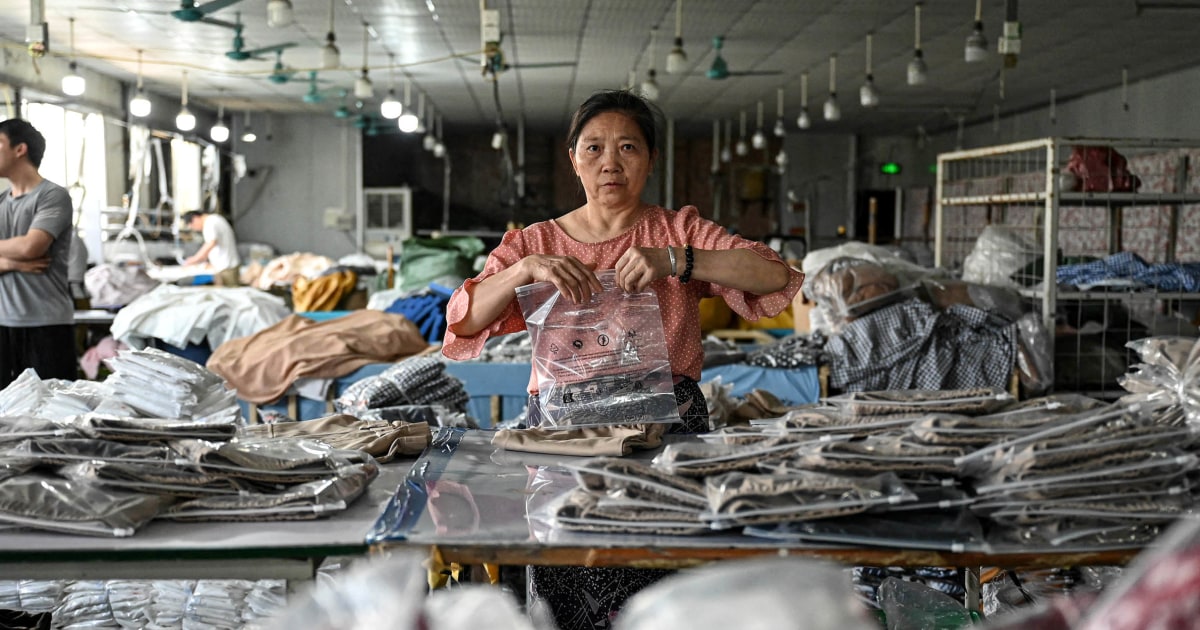Shein and Temu Gain Temporary Relief as U.S. Tariffs Ease
In a significant shift for global e-commerce, Chinese fast-fashion giants Shein and Temu are benefiting from relaxed U.S. tariff policies, granting them a temporary reprieve amid ongoing trade tensions. The Biden administration’s recent adjustments to Section 301 tariffs have lowered import duties on certain consumer goods, providing short-term relief for the ultra-fast-fashion retailers. This policy change, effective since June 2024, comes as Washington balances trade enforcement with inflation concerns, sparking debates about the future of cross-border digital commerce and U.S.-China economic relations.
The Tariff Rollback: A Lifeline for Budget-Conscious E-Commerce
The U.S. Trade Representative’s office recently modified tariffs on approximately $18 billion worth of Chinese imports, reducing levies on select consumer electronics and apparel categories from 25% to 15%. This adjustment directly impacts Shein and Temu, which collectively ship over 600,000 packages daily to American consumers, according to recent Customs and Border Protection data.
“This tariff reduction provides breathing room for platforms specializing in low-cost, high-volume merchandise,” explains Dr. Lila Chen, a trade policy analyst at Georgetown University. “However, it’s likely a temporary measure rather than a long-term policy shift—the administration remains under pressure from domestic manufacturers and sustainability advocates.”
Key changes affecting the e-commerce platforms include:
- Reduced duties on synthetic fiber apparel (previously taxed at 25%)
- Lower tariffs on certain electronics components used in wearable devices
- Streamlined customs processes for small-value packages under $800
Mixed Reactions from Industry Stakeholders
While consumers and e-commerce platforms welcome the changes, domestic retailers and labor groups express concern. The National Retail Federation reports that Shein and Temu now account for nearly 30% of all fast-fashion sales in the U.S., up from 18% in 2022. Meanwhile, the American Apparel and Footwear Association warns that tariff reductions could disadvantage domestic manufacturers still recovering from supply chain disruptions.
“We’re seeing a classic policy tension,” notes Michael Robertson, director of the Center for Trade and Economics. “On one hand, these platforms deliver affordable goods to inflation-weary consumers. On the other, they operate with significant advantages in labor costs and environmental oversight compared to U.S.-based producers.”
How Shein and Temu Are Adapting to the Shifting Landscape
Both companies have swiftly adjusted operations to maximize the tariff window. Shein recently announced plans to triple its U.S. warehouse capacity by 2025, while Temu has expanded its American supplier network by 40% since January. These strategic moves aim to hedge against future policy changes while improving delivery speeds for their 60 million combined U.S. users.
Recent developments include:
- Shein’s partnership with Forever 21 owner Authentic Brands Group to access domestic distribution channels
- Temu’s $100 million investment in U.S.-based customer service centers
- Both platforms implementing new AI-driven pricing tools to adjust for tariff fluctuations
The Sustainability Question Looms Large
Environmental advocates argue the tariff relief undermines efforts to combat fast fashion’s ecological impact. The Ellen MacArthur Foundation estimates that Shein and Temu’s business models generate 400% more carbon emissions per item than traditional retail due to hyper-rapid production cycles and transoceanic shipping. With both companies now shipping over 1.2 million tons of merchandise annually to North America, some policymakers are pushing for environmental tariffs to offset these externalities.
“We’re essentially subsidizing disposable fashion at the planet’s expense,” asserts climate policy researcher Elena Torres. “If tariffs don’t account for environmental costs, we’re missing a critical tool to regulate unsustainable business models.”
What’s Next for Cross-Border E-Commerce?
The tariff reprieve comes as Congress considers the Shop Safe Act, which would impose stricter liability on platforms for counterfeit goods. Meanwhile, the U.S. International Trade Commission has launched an investigation into alleged forced labor in the fast-fashion supply chain—a move that could trigger new import restrictions regardless of tariff rates.
Industry observers identify three likely scenarios for the coming year:
- Extended Status Quo: Tariffs remain reduced through 2025 as inflation concerns dominate election-year politics
- Targeted Restrictions: New sector-specific tariffs emerge focused on environmental or labor standards
- Wholesale Policy Shift: Comprehensive e-commerce trade framework replaces piecemeal tariff adjustments
As consumers increasingly vote with their wallets—Temu’s app downloads surged 78% year-over-year in Q2 2024—policymakers face mounting pressure to create coherent rules for the borderless digital marketplace. For now, Shein and Temu are making the most of their tariff windfall, but the real test will come when the temporary becomes permanent—or disappears altogether.
Want to understand how changing trade policies affect your business? Subscribe to our trade policy newsletter for monthly analysis from industry experts.
See more Business Focus Insider Team

